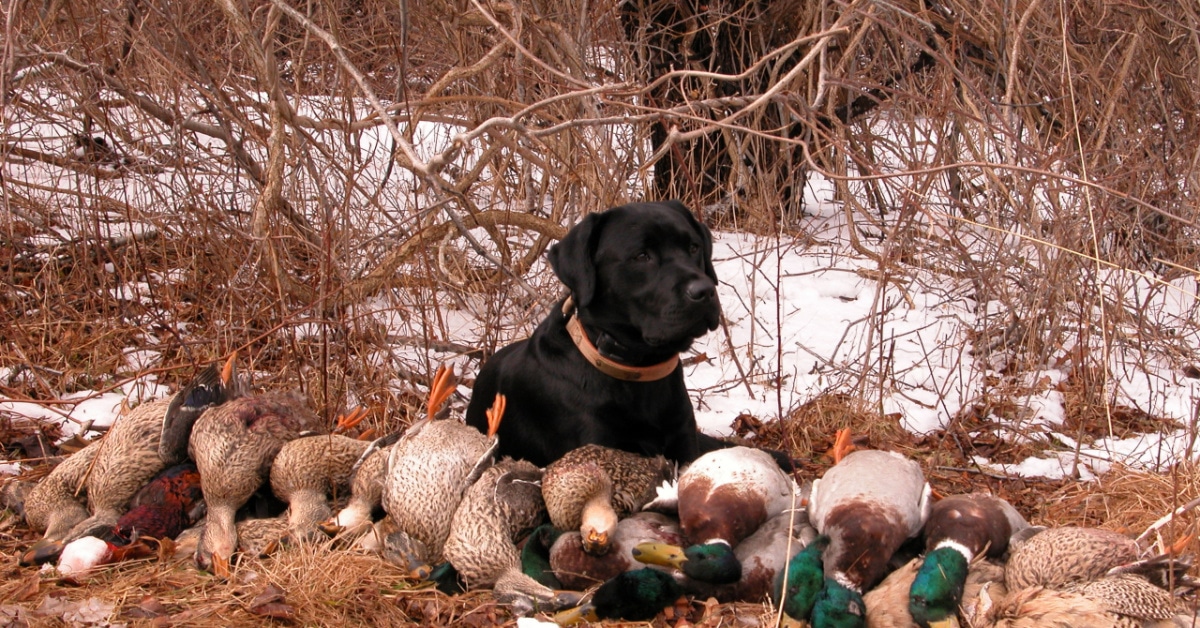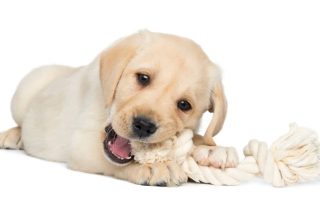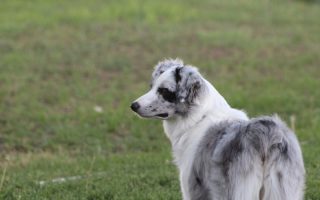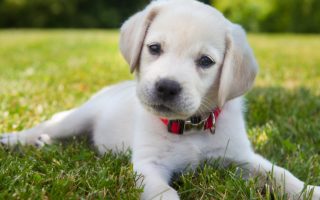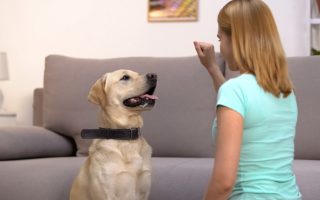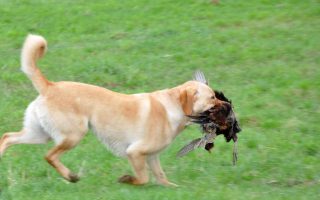Labrador Retrievers are popular for being highly trainable. However, can you train a one-year-old Lab puppy to hunt?
When is the right time to train your Labrador puppy? Can you train your Lab puppy even when they are still one year old? Can you do it at only six months?
The rest of this article will go through whether or not you can train your Labrador puppy to hunt at certain ages.
Hunting and Labrador Retrievers
Before Labs became a widely known household pet. Or even before they recognized by the Kennel Clubs as a legitimate breed. Labradors were already in the fields with their owner.
They were first brought to England because of their potential in being a hunting companion.
While the initial role of Labs’ ancestors was to help their owners fish in New Foundland. Some people thought that the build of a Lab would make them great for hunting!
Today, Labrador Retrievers are one of the top hunting breeds for nearly 30 years in a row.
That said, any form of expertise requires training. And one of the first questions to crop up when talking about training is asking when the right time is.
The next section will answer the question “can you train a one-year-old Lab puppy to hunt?”.
Can you train a one-year-old Lab puppy to hunt?
The quick answer to this is: yes, you can train your 1-year-old Labrador puppy to hunt.
In fact, you should not be waiting that long to start immersing them in training activities that will sharpen their hunting skills.
Hunting training does not begin the moment that you actually go out into the field with your Lab and try out real-life scenarios.
It goes way, way back from when they are only a few months old. You are just beginning to train them with the basics.
This includes obedience training, teaching them basic commands, and potty training, among others.
These training sessions can be done as early as when your Labrador is only eight weeks old.
Hunting training is a complex task. It only makes sense that your Labrador Retriever would need to have a solid grip on the basics before jumping into more advanced hunting training.
At eight weeks old, you can start training your Lab for the initial steps and requirements of being a good gun dog.
This means teaching them properly how to sit, stay, fetch, and all the other basic cues.
It is around the six-month mark or so that most pet owners start to train their Labrador Retrievers in applicable hunting scenarios.
If you want the hunting training to be done by a professional, you have to know that most establishments or trainers will only take dogs that are around that age as well.
So, while hunting training is a long process that can take up to a year before your Lab is fully ready to immerse in real gun dog work, the work behind it starts as early as eight weeks old.
Consequently, it only goes without saying that you can teach your 1-year old Lab to hunt.
Some important things you need to know about training a one-year-old Lab puppy to hunt
To make it easier to visualize, here are a couple of things that your Labrador should know or should already be trained in by the time that you start with the more intensive and advanced hunting training methods:
1) Basic skills
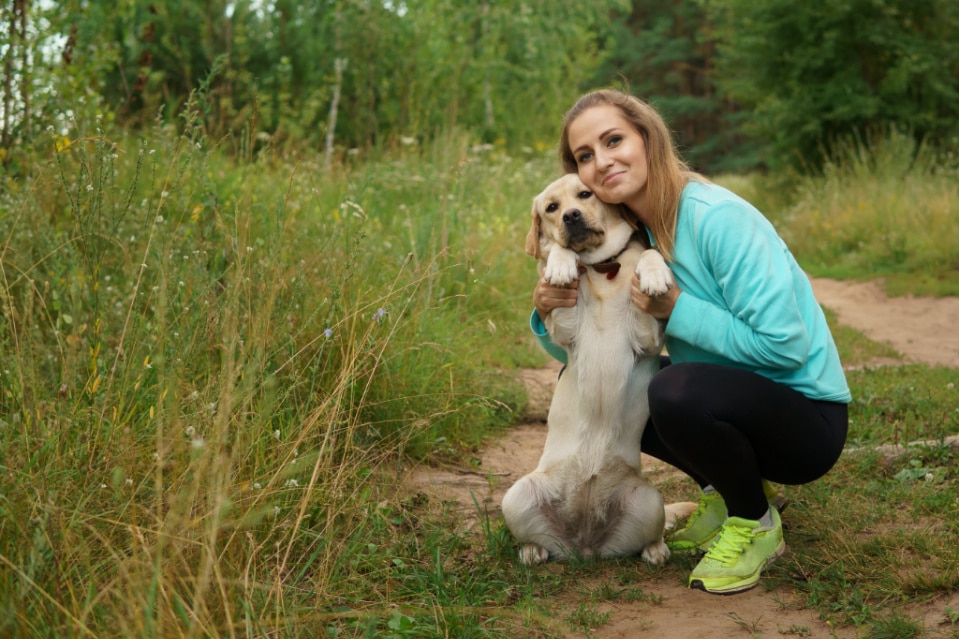
These basic skills include teaching your Lab puppy to sit and stay and have them actually sit and stay even when you leave the room.
It can be a little bit challenging at first, but these skills are necessary for proper gun dog training.
During the early weeks, you can also begin with socializing your Lab puppy in parks or public spaces, where they can interact with other dogs and human beings.
It will be good for them to get a sense of companionship from other living beings as well.
2) Terrain training
From their name itself, the role of the Labrador when it comes to gun dog work is to retrieve.
This is usually paired with another skill, and for the Labrador. It is flushing the prey out of their hiding area.
Retrieving focuses on getting the downed game out of the water, if necessary.
This means that your Labrador would have experienced. In navigating different types of terrain to masterfully do their hunting work.
While the Lab does not roam the field as much as a pointer (although Labs could also be pointers), their retrieving work takes knowledge of both the water and knowing how to navigate it.
Fortunately, most Labradors love water! It probably comes from the fact that their ancestors were fishing dogs.
In addition to that, Labrador Retrievers have the perfect double coat to protect them from the elements, and if ever the temperature of the water is on the harsh side of the spectrum.
Overall, you won’t need to work so much on how to get your Labrador Retriever to love water.
Their love for water is embedded in their genetic material. So you won’t have a hard time convincing them that water is their friend.
What you need to do is to expose them to water so that they can get a grip on what it will be like as a gun dog.
The more exposure your Lab gets to water, the better the results will be.
3) Scent training
Another thing that your Labrador also has to be adept at is recognizing the scent of the game.
You can begin by slowly letting them experience the scents that they would experience if it were a real scenario.
You can also strengthen their scent training by asking them to retrieve an item or a dead bird once they have gotten used to the smell, without looking at where it went.
This way, your Labrador can effectively pinpoint the location of the prey with the assistance of smell.
4) Be patient.
This one is more for you as the owner than for your Lab. Training your dog to hunt will not be an overnight process.
It will take neither a couple of days nor a couple of weeks. As a matter of fact, at best, you are looking at some months down the road just for training.
In the end, however, it will all be worth it, as you will find that training a Labrador to hunt will make them more capable in many ways.

